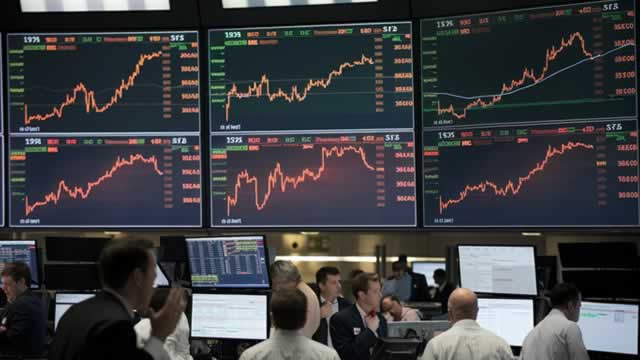The Unpredictable Impact of Tariffs on the Stock Market: Navigating the Seesaw
The stock market, a complex and dynamic organism, thrives on predictability and stability. However, the daily headlines about new tariffs being placed on U.S. imports and possible negotiations with trading partners to do away with tariffs have led to an unpredictable environment, causing seesaw intraday action.
Understanding Tariffs and Their Impact on the Stock Market
Tariffs are taxes imposed on imported goods. They are implemented by governments as a tool to protect domestic industries, influence trade policies, or generate revenue. However, tariffs can also have unintended consequences, particularly on the stock market.
When tariffs are introduced, they can lead to increased costs for companies that import goods. This, in turn, can negatively impact their profitability and, by extension, their stock prices. Conversely, tariffs can benefit domestic industries by making imported goods more expensive, potentially boosting their sales and stock prices.
The Current Tariff Situation: A Global Perspective
The current tariff situation is far from clear-cut. In 2018, the United States imposed tariffs on Chinese imports, leading to retaliatory tariffs from China. This has created an uncertain environment for multinational corporations with significant exposure to both markets.
Furthermore, ongoing negotiations between the United States and other trading partners, such as the European Union and Japan, have introduced additional uncertainty. The potential for tariff reductions or eliminations could benefit certain industries and companies, but the lack of a definitive outcome keeps the market guessing.
The Personal Impact: Navigating Tariffs as an Individual Investor
As an individual investor, the impact of tariffs on the stock market can be felt in several ways. If you hold stocks in companies that are heavily reliant on imported goods or have significant exposure to the affected markets, you may experience volatility in your portfolio.
- For example, if you own stocks in a technology company that sources components from China, you may see increased volatility as tariff negotiations unfold.
- On the other hand, if you own stocks in a domestic company that benefits from tariffs, you may see a short-term boost in stock prices as the tariffs are introduced.
The Global Impact: A Ripple Effect
The impact of tariffs on the stock market is not limited to the affected companies and industries. The uncertainty created by tariffs can lead to a ripple effect, with other sectors and markets experiencing volatility as well.
For instance, the uncertainty surrounding tariffs can lead to a decrease in consumer confidence, potentially impacting retail stocks. Furthermore, tariffs can disrupt global supply chains, leading to increased costs for companies and potentially impacting their ability to meet demand, affecting industries such as manufacturing and logistics.
Conclusion: Staying Informed and Agile in an Uncertain Environment
The impact of tariffs on the stock market is a complex issue with far-reaching consequences. As an investor, it’s essential to stay informed about the latest developments and to be prepared for volatility in your portfolio. This may involve diversifying your investments, closely monitoring companies with significant exposure to the affected markets, and being prepared to make adjustments as the situation unfolds.
Ultimately, the current tariff situation highlights the importance of remaining agile in an uncertain environment. By staying informed and prepared, investors can navigate the seesaw action of the stock market and position themselves for long-term success.





